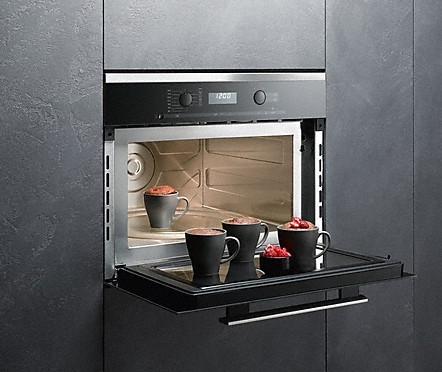
1. Acknowledge that the microwave oven needs cleaning – even if it doesn’t seem to: dirt, grease, and food build up over time, and this can lead to problems like interference and poor performance.
A Brief History of the Microwave Oven
Microwaves have been around for a long time and have seen a lot of improvements. In the 1940s, the microwave oven was invented by Percy Spencer. It was during this time that the microwaves used in ovens were similar to those of the early models. In the 1950s, inventor George Carlo patented the microwave oven and made several improvements to the technology. Since then, there have been several more improvements to the microwave oven that include new ovens with larger oven chambers and more power. Essentially, a microwave oven cooks food quickly by heating it from the inside out. Thanks to these improvements, microwaves are a popular appliance in homes today.
How Long Should a Microwave Last?
Microwaves are a common appliance in most homes. They come in handy for quickly heating up food or replacing the oven when it’s too hot inside. However, like most appliances, they can last longer if they’re used correctly and maintained accordingly. When it comes to average microwave lifespan, the appliance usually lasts about seven years with normal use; however, this lifespan can be shortened even further if the wrong items are placed inside of the microwave oven (such as water bottles). In fact, some research suggests that microwaves may not last more than four to five years at best when incorrectly used and overloaded with multiple dishes at once!
Signs You Need to Repair or Replace
If you’re noticing any of the following signs that mean it’s time to repair or replace your appliance, take action sooner rather than later: – Cooking times are off – The oven might be taking much longer than usual to cook food. A few signs may include:
- Or foods may not be cooking evenly
- The door seal is compromised – Water can get inside the appliance and cause problems like corrosion and warped doors.
- Issues with the keypad – Keys don’t work correctly, or they only work a certain number of times before becoming worn out.
- Old age – Appliances go through wear and tear as they’re used more often over time. This means parts may need to be replaced more frequently, leading to increased costs down the line
Neglecting to clean it
It’s easy to take our microwave for granted, but cleaning it regularly can extend its lifespan by up to 50%. In addition to cleaning the inside and exterior, follow these four simple steps to keep it in good condition: powerwash and scrub using a mild dishwashing detergent, use warm soapy water, dry thoroughly with a clean cloth, then seal with a non-stick cooking spray. Don’t forget to call an expert if cleaning the microwave seems to be a hassle – they may be able to apply heat or special cleaners that will work better on stubborn stains. And lastly, be sure to follow the appliance’s cleaning instructions to prevent any health hazards.
Microwaving certain foods
It’s always important to consult your microwave’s Owners Manual before using it for the first time. This will help you get to know the appliance and understand its different features. In terms of microwaving food, be careful not to overheat it. The cooking time may also vary depending on the type of food being cooked. Always check the packaging for specific instructions. So, next time you’re in the mood for a quick microwave meal, be sure to check out the lifespan of your appliance first!
Slamming the door
It’s not just us humans that can be clumsy – microwaves can be too! Not only can slamming the door of the appliance cause it to break, it can also cause the magnetron to overheat, potentially leading to a fire. To avoid any potential issues, always use caution when opening the microwave and make sure to use the handle to open and close the door. And last but not least, always use microwaves within their recommended lifespan – this will help to reduce the chance of any accidents.
Not following instructions
Microwaves are great for quick and convenient meals, but it’s important to take care of them. Follow the instructions that are printed on the door of your microwave to ensure a long lifespan. Not following these guidelines can shorten the lifespan of your microwave. Additionally, be sure to place microwaves in the correct position and orient them correctly to get the best performance from it. Last but not least, always use the power guidelines that are printed on the door of the microwave to ensure that it is using the correct amount of power and is not overloading.
Conclusion
The lifespan of a microwave oven largely depends on the care that it is given. By following the simple cleaning and maintenance tips outlined in this blog, you can ensure that your microwave oven lasts for years to come. In addition, be sure to avoid slamming the door or leaving foods in the oven for an extended period of time – these actions can damage the appliance and shorten its lifespan.
